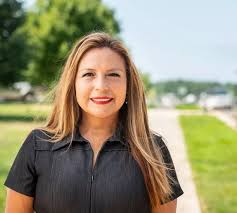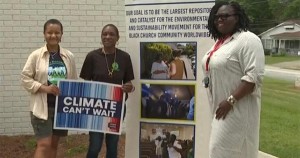Elizabeth Guzman Speaks On The Future of Education
Delegate Elizabeth Guzman (D-31st) has been on a crusade to provide working class families better opportunities as she campaigns to become Lieutenant Governor. Over the past few weeks she has been involved in such legislative measures such as advocating for annual paid sick leave to home health care workers to an amendment allowing undocumented women access to pre-natal care. Among those victories there are several other challenges that she is taking on, with one of the most important being education. Yesterday she participated in a virtual debate with opponent Delegate Glenn Davis (R-84th) at James Madison University on what is the best way for the Commonwealth to improve graduation rates and prepare students for the next level.
Afterwards she spoke with the PW Perspective about a myriad of issues in and out of the classroom. One of them was on the passing of HB 2204, which will allow for some students to have two free years of community college. Known as the G3 Program, Guzman praised the hard work that went into its design and said that it can expand even more.
“I’d like to thank [House Speaker Eileen Filler-Corn] for all of her efforts in making this a reality,” said Guzman. “On July 1st it goes into law, and students will have those opportunities to get the skills they need to get a job and give back. However, I wish it could become more inclusive, as it pertains to families making $60,000, which means it will apply to only a few.”
Another program that she has advocated for is greater promotion of family life programs, which are currently optional. “It is critical that we equip public high school students, especially our pregnant ones, with these programs so they can be better prepared for what is ahead. In Prince William County we have done a great job of getting students ready with family life programs as well as trade skills acquisition so they can have exposure to those types of jobs after graduation.”
Last month Guzman, who herself was a team mother, spoke on reproductive justice in the context of Black History Month.
Speaking of which, as the graduation rates have dropped to 70% since 2013, she offered solutions as to what she would do as Lieutenant Governor to help raise the rates back to pre-2013 levels. “Students are facing a difficult dilemma when they are dealing with poverty: continue with school or drop out to help their families by working? We have a serious problem with poverty in the state and it needs to be recognized,” said Guzman. “I will continue to advocate for the $15 minimum wage rate, and for those who oppose it, there’s a disconnect from the wealthy that everyone is privileged.”
“This is why I work to be the voice of working families. We are missing it right now.”
One of her major platforms in education is paying teachers more to retain their services, but also providing opportunities to implement a more diverse work force. “We can look at the data of how many applicants pursue teaching jobs, but if we aren’t making it a priority to hire teachers who come from the communities where the students attend school, then it’s all for naught.”
“In Prince William County we are a majority-minority, and we have to take advantage of that by placing more teachers and administrators who look like the students they teach. In Fairfax County, there is a mandate to have a specific ratio of diverse teachers to students. However, it starts with Black and Latinx people having the desire to do it, and by increasing wages comparable to states like Maryland and Pennsylvania, we can make that possible.”
She encourages corporations to work more closely with schools in order to create more jobs. “I would ask more companies who relocate in Virginia to give more to schools in efforts to sponsor hiring of teachers. This is a great place for businesses, and we can create a connection between them and the schools to hire, train and retain our workforce.”
She also addressed how students who come to the United States from other countries need to have access to English as a Second Language courses earlier in life. “We need to start earlier for those children who come here and are limited to ESOL classes due to disproportionate income levels. This is why I support having universal Pre-Kindergarten courses, which could improve their chances at learning English when their younger and helping their overall development by expanding IEP services.”
“Also, we need to do the same for their parents. Many of them rely on what their children are learning in class in order for them to speak English. We have to make the funds available to make that happen.”
The school pipeline to prison concept that disproportionately targets Black and Latinx students requires overall change, and that is something Guzman plans to rectify. “I think that we need to hire more school counselors than SROs [School Resource Officers],” said Guzman. “They come in with law enforcement guidelines and discipline students based on such. As a result, Black and Latinx children end up in the juvenile centers while white children are sent home.”
The former social worker emphasized hiring those of a similar ilk. “The more counselors, social workers and psychologists we bring in, especially ones of color, the less disciplinary issues we will find in schools. Black and brown children already suffer under racism, and not addressing this problem leads to greater ones down the line.”
She also mentioned how more diagnoses for special needs children will reduce disciplinary measures. “Many students aren’t diagnosed properly when they are younger, and become subject to the system. We need to expand resources and get children tested earlier in life. As we do that we will find that many students are going through greater mental health challenges that we realize, and can give them and their parents the help they need.”
Finally, she recalls her reasons for becoming a social worker and lessons she learned in preparing for the position. “My father used to always tell me, anything you desire to do, be the best!”
“I encourage anyone who wants to do it, there is room to grow within it and to be yourself. It is one of the most rewarded experiences and we need more people who are willing to address the issues facing our students.”



